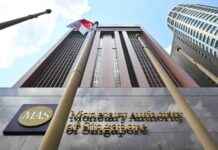Whistleblowing at Singapore Post Sparks Internal Probe and Controversy
In a recent turn of events, Singapore Post has been embroiled in a scandal involving whistleblowing, leading to a cascade of events that have put the spotlight on this practice and its implications. The story began when a whistleblowing report triggered an internal probe within the company’s international business unit, uncovering a deceitful practice of falsely keying in unsuccessful delivery attempts for a major client’s parcels. Subsequently, three unidentified employees were terminated, followed by the dismissal of three senior executives for being “grossly negligent” in handling the investigation.
These incidents came to public attention through a Singapore Exchange (SGX) filing on Dec 22, where Singapore Post announced the removal of its group CEO, group CFO, and international business unit head. This series of events has highlighted the importance of whistleblowing and its impact on organizational transparency and accountability.
Understanding Whistleblowing: Legal and Ethical Implications
Whistleblowing, a vital mechanism for disclosing unlawful or unethical activities within an organization, remains a complex and nuanced issue in Singapore. According to legal experts like Professor Mak Yuen Teen and lawyer Celeste Ang, whistleblowers lack comprehensive legal protection, relying instead on contractual safeguards provided by their employers. While legislation could offer enhanced security and recourse for whistleblowers, concerns persist about potential reprisals and risks associated with exposing misconduct.
Challenges and Best Practices in Whistleblowing Programs
Navigating the challenges of whistleblowing, especially when reporting top executives like CEOs, requires a delicate balance between due diligence and impartiality. Boards and committees overseeing whistleblowing reports must maintain objectivity and independence to ensure fair investigations and outcomes. Establishing robust whistleblowing programs with external oversight and clear procedures is crucial for fostering a culture of accountability and ethical conduct within organizations.
The Importance of Robust Whistleblowing Policies for Organizational Integrity
As companies strive to enhance their whistleblowing programs, the emphasis is shifting towards safeguarding the integrity of these mechanisms and encouraging genuine whistleblower disclosures. By promoting compliance, ethical behavior, and management commitment, organizations can create a culture that values transparency and accountability. The potential reputational damage of overlooking whistleblowing policies underscores the necessity for companies to prioritize these initiatives and protect whistleblowers from retaliation.
In conclusion, whistleblowing remains a vital tool for promoting ethical conduct, transparency, and corporate governance. By recognizing the challenges, implementing best practices, and fostering a culture that values whistleblowing, organizations can strengthen their integrity and accountability in today’s complex business landscape.


























